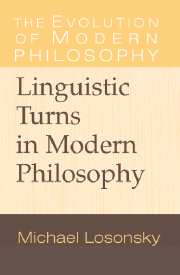5 - The Import of Propositions
John Stuart Mill
Published online by Cambridge University Press: 05 June 2012
Summary
John Stuart Mill (1806–73) liked to use mottoes in his works that captured guiding themes of his overall philosophy. The mottoes he chose for his two major works on logic and politics, A System of Logic and On Liberty, are no exception and shed light on Mill's philosophy of language. Book I of his System of Logic, called “Of Names and Propositions,” is headed by two passages praising Scholastic contributions to philosophy. The first is by the French mathematician, philosopher, and revolutionary Marquis de Condorcet (1743–94); The second is from Discussions in Philosophy by the Scottish philosopher and logician William Hamilton (1788–1865):
Scholasticism, which produced in logic, also in ethics, and in a part of metaphysics an acuteness and precision of ideas, a custom unknown to the ancients, contributed more than one might think to the progress of good philosophy.
To the schoolmen the vulgar languages are principally indebted for what precision and analytic subtlety they possess.
(Mill 1974, 7:18)These passages express Mill's esteem for formal logic. Mill writes in the preface to the System of Logic that he does not share “the contempt entertained by many modern philosophers for the syllogistic art,” and he announces that in book I he will revive “many useful principles and distinctions which were contained in the old Logic” (1974, 7:cxi–cxii). For this reason he worries that this discussion of “Of Names and Propositions” will “appear, to some readers, needlessly … scholastic” (1974, 7:cxii).
- Type
- Chapter
- Information
- Linguistic Turns in Modern Philosophy , pp. 116 - 147Publisher: Cambridge University PressPrint publication year: 2006



